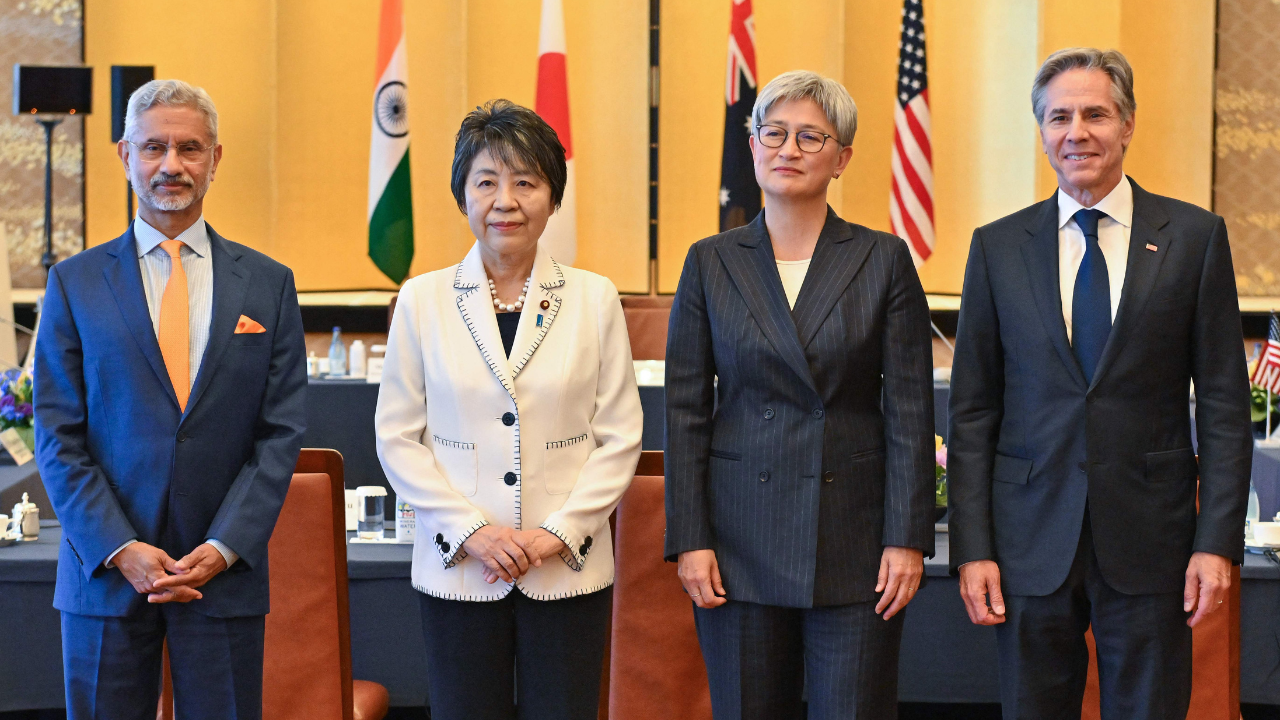Quad Foreign Ministers Meet in Tokyo with Eye on China
In a pivotal meeting in Tokyo, US Secretary of State Antony Blinken joined his counterparts from Japan, Australia, and India to reinforce a collective vision for a "free and open" Pacific. Although the joint statement is not expected to explicitly name China, the message is a clear response to Beijing’s growing assertiveness, especially following recent confrontations between Chinese and Philippine vessels in the South China Sea. The discussions in Tokyo are a significant move by the Quad nations, signaling their collective stance against China's aggressive territorial claims and its attempts to dominate regional waters[Al Jazeera].
Before the Quad meeting, Blinken and US Defense Secretary Lloyd Austin held high-level defense talks with Japanese officials. The discussions culminated in sharp criticisms of China and Russia, accusing Beijing of trying to reshape international norms to its benefit. The officials also condemned the increasing military cooperation between China and Russia, particularly the acquisition of ballistic missiles from North Korea for use in Ukraine. This marks a continuation of the US and Japan's strategic alignment in countering not just regional but also global threats posed by Beijing and Moscow's expanding military ties[Reuters].
In Tokyo, the Quad ministers are reportedly planning to bolster the Philippines' cybersecurity capabilities and assist Palau in developing its communication network infrastructure. This support comes amid ongoing maritime disputes between Manila and Beijing over the South China Sea, a crucial trade route. Recent violent clashes have raised fears of a potential conflict that could involve Washington due to its alliance with the Philippines. Moreover, the Quad members intend to help other nations with maritime policing and search-and-rescue operations, reaffirming their commitment to regional security and stability. This assistance underscores the group's strategic focus on countering China's maritime claims and enhancing the security infrastructure of smaller nations in the Indo-Pacific[South China Morning Post].
Despite the unified front, the Quad's internal dynamics remain complex. Differences in their stances on global issues, such as the war in Ukraine, demonstrate that the Quad members are not always aligned. India’s significant reliance on Russian arms complicates its position within the group, as evidenced by Prime Minister Narendra Modi's recent meeting with Vladimir Putin. Analysts note that while the Quad projects itself as a preferred partner in the region compared to China, its statements often avoid direct references to China. This cautious approach aims to balance the Quad's security agenda with broader diplomatic goals. Professor Bec Strating of La Trobe University highlights that this mixed messaging sometimes sends unclear signals to China and other regional actors[The Hindu].
The Tokyo meeting, the first since September, seeks to build on previous discussions and evaluate the progress of Quad initiatives. The ministers aim to address regional priorities and deliver public goods to achieve their vision of a free and open Indo-Pacific. However, the varied agendas and diplomatic balancing acts within the Quad will continue to shape its effectiveness and cohesion as a regional power bloc. Japanese media reported that the ministers will jointly pledge to improve the Philippines' cybersecurity capacity and help Palau build communications network infrastructure[Straits Times].
Manila is locked in a longstanding territorial row with Beijing over parts of the South China Sea—a strategic waterway through which trillions of dollars' worth of trade passes annually. Violent clashes in the area have sparked concern that Manila's ally Washington could be drawn into a conflict as Beijing steps up efforts to push its claims to almost the entire South China Sea. The discussions also highlighted the need for collective defense strategies and cooperative security measures among Quad members to ensure peace and stability in the region, countering the aggressive posturing by China. Blinken and Austin will travel to Manila Monday evening for more "2+2" talks there, underscoring the importance of the Philippines in the Quad's strategic calculations and their commitment to supporting allies in the face of Chinese aggression[Japan Times].
As the Quad nations continue to navigate the delicate balance of addressing China's influence while managing their own strategic interests, the meeting in Tokyo serves as a critical juncture for reinforcing their commitment to a rules-based international order. The Quad's ability to present a united front, despite underlying differences, will be essential in maintaining regional stability and ensuring that their vision of a free and open Indo-Pacific is realized.


Comments
Post a Comment